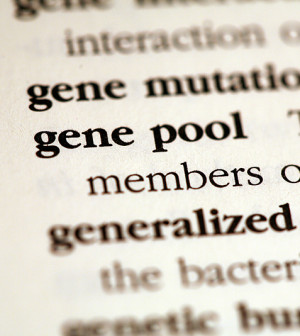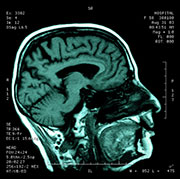- Are You Making This Expensive Thermostat Error This Winter?
- Recognizing the Signs of Hypothyroidism
- 10 Strategies to Overcome Insomnia
- Could Artificial Sweeteners Be Aging the Brain Faster?
- Techniques for Soothing Your Nervous System
- Does the Water in Your House Smell Funny? Here’s Why
- Can a Daily Dose of Apple Cider Vinegar Actually Aid Weight Loss?
- 6 Health Beverages That Can Actually Spike Your Blood Sugar
- Treatment Options for Social Anxiety Disorder
- Understanding the Connection Between Anxiety and Depression
Mouse Study May Shed Light on Huntington’s Disease


An amino acid deficiency might be responsible for the brain degeneration that occurs in people with Huntington’s disease, research in mice suggests.
Huntington’s is an incurable inherited brain disease. Symptoms typically begin in middle age and include movement and balance problems. Patients can eventually lose the ability to walk, talk and swallow.
Patients with Huntington’s have degeneration in up to 90 percent of a brain structure called the corpus striatum, which plays a role in mood, movement and thinking. Although the genetic mutation that causes Huntington’s has long been known, the specific cause of this brain degeneration has not been identified, according to a Johns Hopkins University news release.
In the new study, Johns Hopkins researchers discovered that mice that couldn’t make the amino acid cysteine had widespread deterioration in the corpus striatum. But the progression of this destruction was slowed when the mice were fed a diet rich in cysteine, which is found in foods such as wheat germ and whey protein, the researchers found.
The mice in the study lacked an enzyme called cystathionine gamma lyase, which helps make cysteine, the researchers said.
The findings, which were published online March 26 in the journal Nature, suggest that the use of cysteine supplementation in Huntington’s patients warrants further investigation, according to the researchers.
Scientists note, however, that research with animals often fails to provide similar results in humans.
“Usually it’s very hard, if not impossible, to develop straightforward mechanisms that explain what’s going on in a disease,” team leader Dr. Solomon Snyder, a professor of neuroscience, said in the news release.
“What’s even harder is, even if you can find a mechanism that causes a tissue to rot, usually there’s nothing you can do about it,” Snyder said. “In this case, there is.”
More information
The U.S. National Institute of Neurological Disorders and Stroke has more about Huntington’s disease.
Source: HealthDay
Copyright © 2026 HealthDay. All rights reserved.










